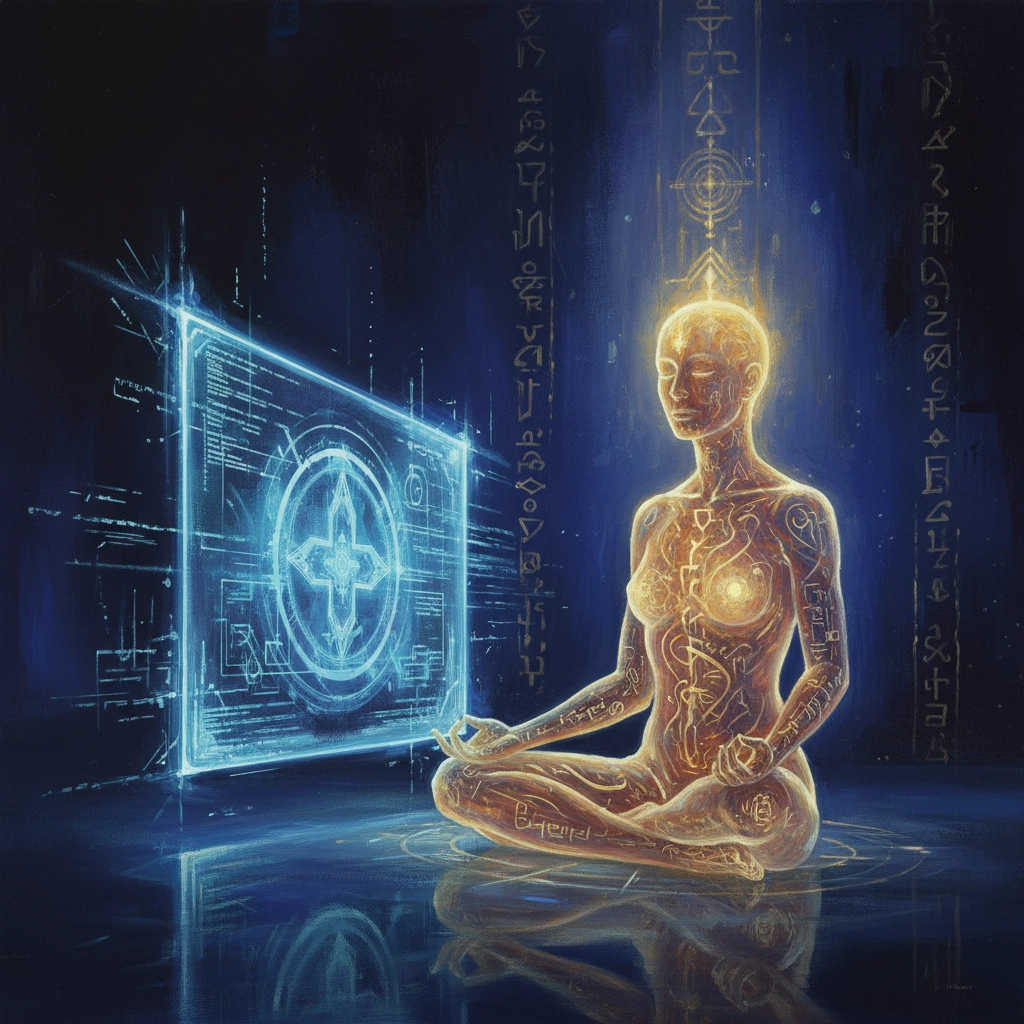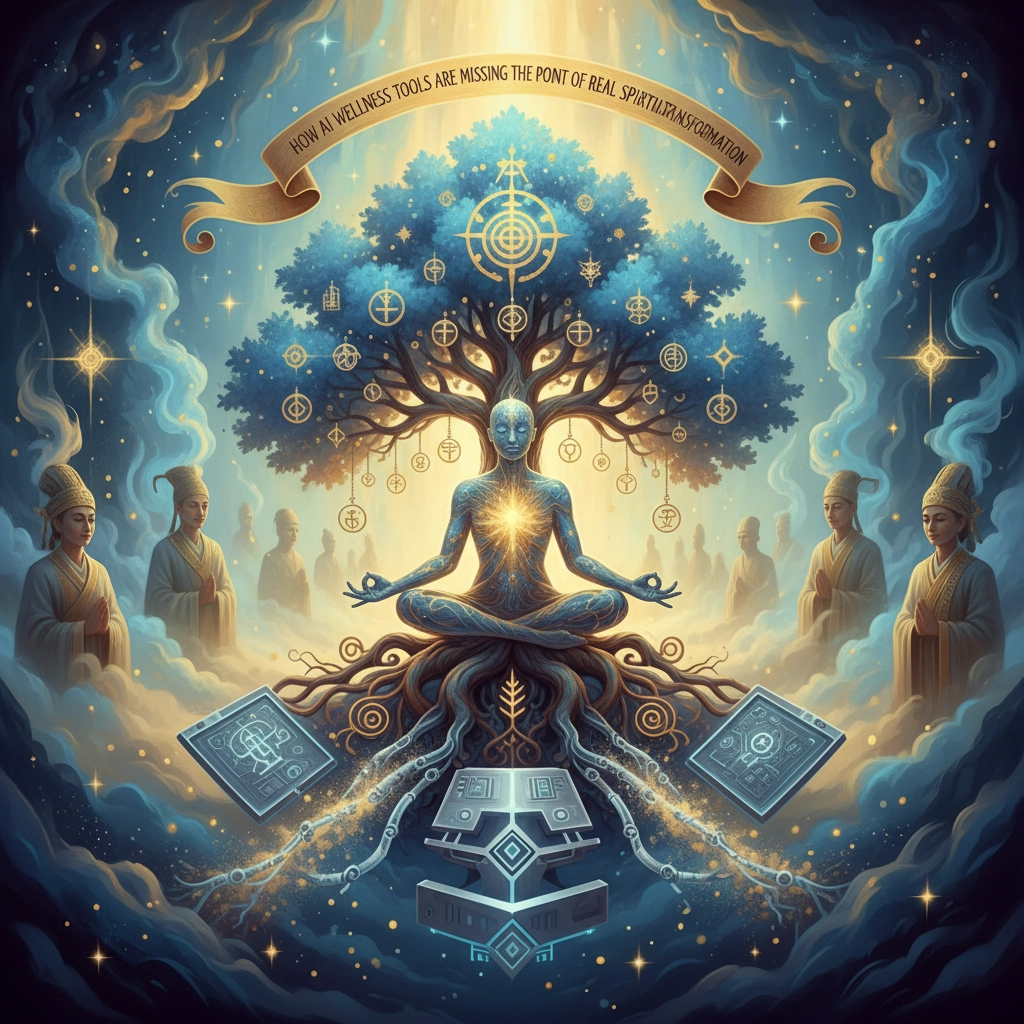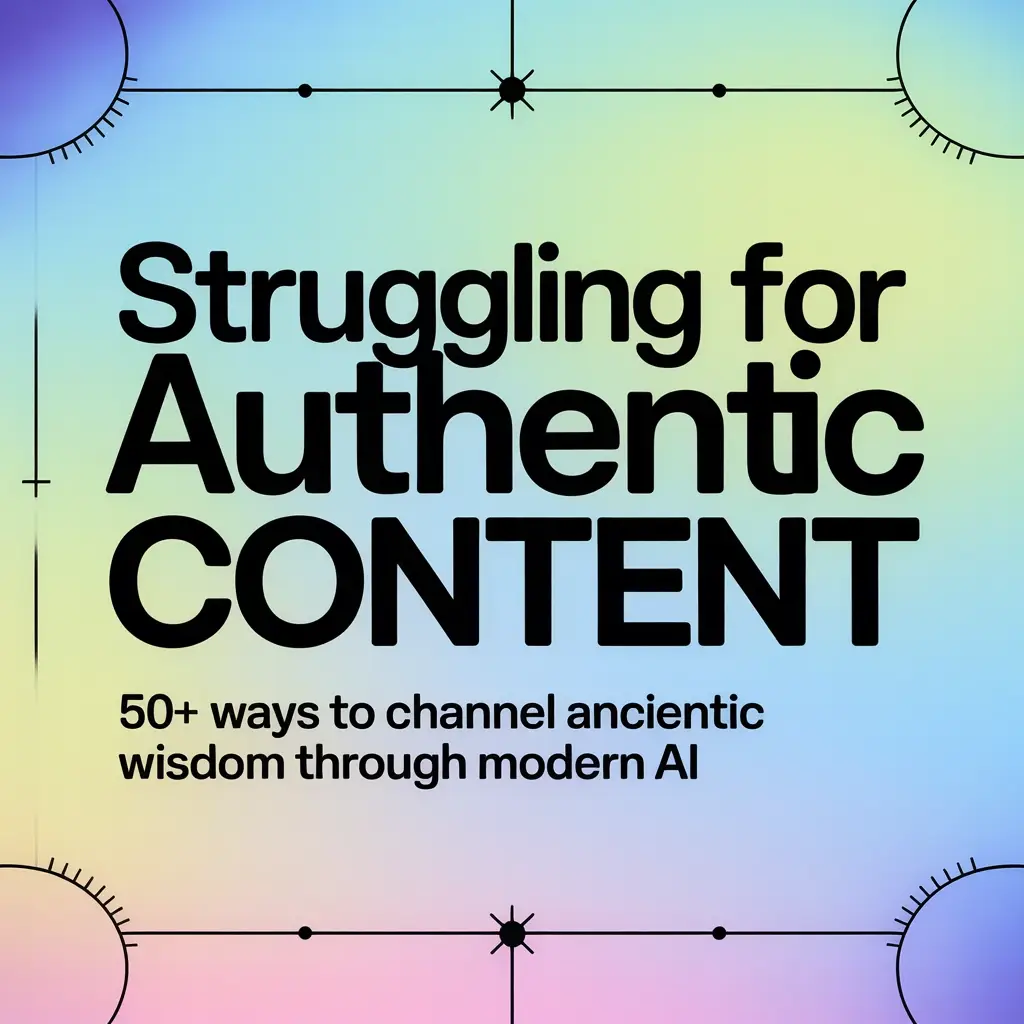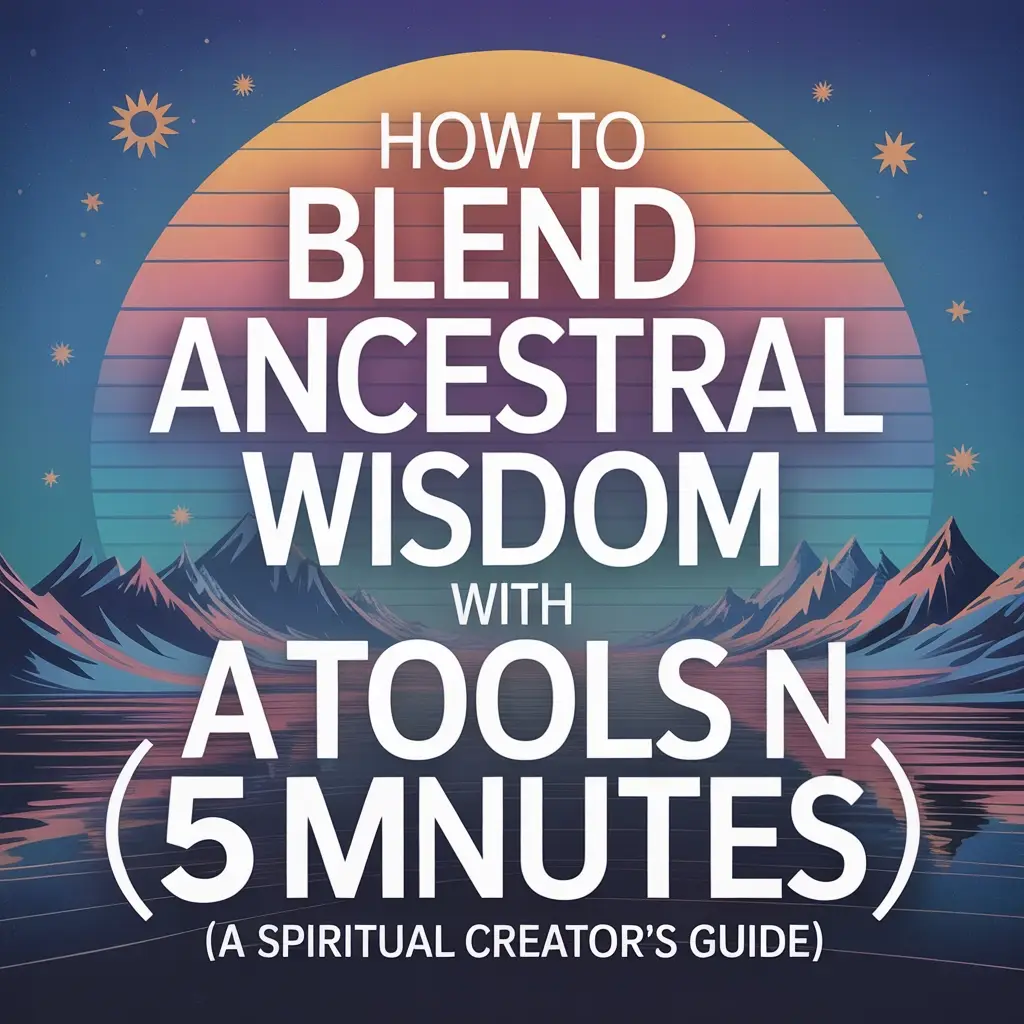AI wellness platforms promise personalized spiritual guidance and intimate reflection. The technology analyzes language patterns, responds to emotional cues, and offers insights on demand. This approach misunderstands fundamental requirements for authentic spiritual transformation.
Current AI systems simulate spiritual connection through algorithmic responses. These tools process input data and generate relevant-seeming output. The result creates an illusion of understanding where none exists. Real spiritual growth requires elements that cannot be automated or digitized.
The Simulation vs Presence Problem
AI wellness tools operate without consciousness, empathy, or genuine comprehension. The technology processes text inputs and generates predictable responses based on training data. This creates what appears to be intimate connection through pattern recognition of emotional language.
Authentic spiritual transformation requires genuine presence and relationship. Traditional spiritual practices understand that growth happens through encounter with wisdom that challenges and changes us. AI provides comfortable, predictable responses that avoid the difficult truths necessary for actual change.

The technology cannot access discernment, spiritual authority, or lived wisdom. These qualities emerge from human experience and relationship with transcendent reality. AI systems offer unreliable information and clichéd responses to serious spiritual concerns.
Instant Access vs Spiritual Timing
AI wellness platforms provide immediate responses to spiritual questions. Users can access guidance at any time without waiting or uncertainty. This model contradicts essential aspects of authentic spiritual development.
Real transformation requires patience, waiting, and gradual unfolding. Spiritual growth often involves periods of not knowing and wrestling with questions. The technology eliminates these necessary stages by providing instant algorithmic answers.
AI systems never suggest stopping or indicate when enough information has been received. The platforms encourage endless consumption rather than the stillness and contemplation required for inner work. This creates cycles of digital dependency that replace genuine spiritual practice.
Technology Replacing Human Guidance
AI wellness tools substitute machine interfaces for human relationships essential to spiritual development. The technology replaces guidance from trained spiritual directors with algorithmic responses that carry no real authority or wisdom.
Traditional spiritual growth happens through community, mentorship, and encounter with wisdom traditions passed through human connection. These relationships provide accountability, challenge, and support that technology cannot replicate.

The shift represents more than changed delivery methods. It redefines spiritual companionship and guidance itself, lowering standards by significant margins. AI creates illusion of relationship while actually promoting isolation from authentic spiritual community.
Human spiritual guides bring lived experience, discernment, and authority that emerges from their own transformation. They can offer challenging words, loving confrontation, and wisdom that comes from walking the path themselves. AI systems lack this foundation entirely.
Pattern Recognition vs Spiritual Mystery
AI approaches spirituality as patterns to be recognized and optimized. The technology analyzes data to identify trends and generate responses that seem relevant. This treats transformation as a problem to be solved rather than mystery to be lived.
Spiritual growth involves encountering genuinely unknown elements that change us. These experiences cannot be predicted or programmed. They require openness to transcendence that moves beyond algorithmic responses.
The technology excels at providing predictable answers based on existing information. Real spiritual breakthroughs often require unpredictable encounters that challenge assumptions and create new understanding. AI cannot access or facilitate these transformative moments.

Authentic spiritual traditions understand transformation as relationship with reality beyond human comprehension. This involves surrender, faith, and encounter with mystery. AI reduces these profound experiences to data processing and pattern matching.
Commodified Sacred Space
AI wellness platforms offer spiritual guidance through consumer technology interfaces. This commodifies what spiritual traditions understand as sacred space and relationship. The result treats profound inner work as another digital service.
Traditional spiritual practice involves commitment, community, and often significant personal cost. These elements create context for authentic transformation. Consumer platforms eliminate these requirements, offering comfortable alternatives to demanding spiritual work.
The technology creates individual, customizable spirituality rather than participation in established wisdom traditions. This approach misses communal aspects essential to genuine spiritual development. Real growth happens through belonging and accountability within spiritual communities.
AI systems provide what critics describe as extraordinarily impoverished substitutes for authentic spiritual practice. Rather than elevating human capacity for transcendence, these tools subvert it by offering digital alternatives to genuine encounter with sacred reality.
Practical Implications
Understanding these limitations helps identify appropriate uses for technology in spiritual contexts. AI wellness tools may offer practical benefits for meditation timers, breathing exercises, or basic stress management. These applications avoid claims to spiritual authority or wisdom.
The technology works better as support tool rather than guide or teacher. Users might employ AI for organizing thoughts, tracking practices, or accessing information about spiritual traditions. These functions avoid the fundamental problems of simulated spiritual relationship.
Real spiritual transformation still requires human connection, community participation, and relationship with established wisdom traditions. Technology cannot replace these essential elements, though it might support them in limited ways.
Consider using AI wellness tools as practical aids while maintaining primary focus on authentic spiritual practices. This approach avoids technological substitution while utilizing beneficial aspects of digital support.
AI wellness tools miss the point of spiritual transformation by treating mystery as problem, relationship as interface, and wisdom as data processing. Real spiritual growth requires elements that cannot be digitized or automated. Understanding these limitations helps maintain focus on authentic practices while using technology appropriately in supporting roles.



